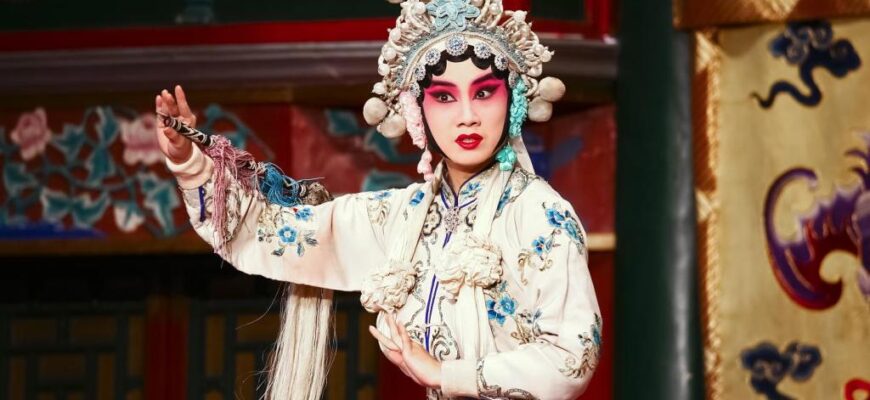Beijing, the sprawling metropolis, often feels like a stage itself, but recently, its theatrical heart has been beating to a distinctly Russian rhythm. The Vakhtangov Theatre, a bastion of Russian dramatic arts, has once again brought its acclaimed productions to China, not merely as a guest, but as a celebrated returning favorite. The latest tour, featuring adaptations of Alexander Pushkin`s “Eugene Onegin” and Anton Chekhov`s “Uncle Vanya,” has unveiled a fascinating cultural phenomenon: China`s profound and ever-growing appreciation for Russian classical theatre.
A Decade of Dramatic Diplomacy
This isn`t Vakhtangov`s first foray into the Middle Kingdom. Their journey began in 2014 with a memorable staging of Dostoevsky`s “Demons,” a production that, even in its absence of the ailing director Yuri Lyubimov, left an indelible mark. Since then, Rimas Tuminas`s interpretations of “Masquerade,” “Eugene Onegin,” and “War and Peace” have become synonymous with high Russian culture on the Chinese stage. This year, the theatre ups the ante, bringing two major productions to three cities – Beijing, Shanghai, and Shenzhen – for a total of twelve demanding performances.
“We usually bring one title,” notes Kirill Krok, the theatre`s director, with a blend of pride and professional assessment, “but this time, for the first time, we brought two — `Onegin` and `Uncle Vanya.` We’ll take them through three cities… twelve performances in total.” It`s a logistical ballet, executed with the precision characteristic of a well-oiled theatrical machine.
“Eugene Onegin”: A Phenomenon Beyond Borders
The undisputed star of this cultural exchange is “Eugene Onegin.” Not just a play, it`s a phenomenon, boasting its own dedicated fan club in China. Imagine: keychains shaped like broken hearts, where the images of Lensky and Olga, tragically separated in Pushkin`s narrative, can be magnetically reunited. Or intricate lamps casting silhouettes of Tatyana and Onegin – these are not mere souvenirs; they are tangible expressions of a deep connection to the narrative.
The level of audience engagement is remarkable. During a post-performance discussion in a Beijing library – itself a curious blend of high culture nested within a bustling shopping mall – theatregoers demonstrated an astonishing depth of knowledge. They challenged actors like Sergey Makovetsky (the elder Onegin) and Viktor Bichevin (the younger Onegin) with incisive questions: “In Russian literature, Onegin is often called a `superfluous man.` How do you view this character today?” For Ekaterina Kramzina, who portrays Tatyana, the queries were equally penetrating, referencing her previous role in the same production: “Chinese audiences have seen several actresses play Tatyana. We saw you two years ago as the wanderer. How did you manage this transition?” This isn`t passive consumption; it`s active, scholarly engagement.
“Uncle Vanya”: A Universal Echo
Chekhov`s “Uncle Vanya,” a staple of the Russian repertoire, also found its ardent admirers. Makovetsky recounted an anecdote from a previous tour: “Several years ago, we brought `Uncle Vanya` to London. We had just arrived and learned that an English production of `Uncle Vanya` had premiered days earlier, earning four stars from local critics. The next day, we opened our `Uncle Vanya` and received five stars – we effectively took one star from them.” A polite, theatrical coup.
This international appeal was vividly underscored by a man who rose from the audience during the discussion, his voice resonating with operatic authority. It turned out he was a renowned opera bass, a veteran of the Metropolitan Opera, who had flown from New York specifically to witness both “Eugene Onegin” and “Uncle Vanya.” “I would have given them three stars,” he declared, referring to the American version he`d seen, before astonishing the room with a powerful rendition of Prince Gremin`s aria from Tchaikovsky`s opera. Such dedication speaks volumes about the global impact of these Russian productions.
The Heroics of the Stage
For actors like Sergey Makovetsky and Lyudmila Maksakova, this tour is not just a performance; it’s a marathon of artistic endurance. They are the only members of the Vakhtangov troupe performing all twelve shows without understudies. Makovetsky takes on both Onegin and Uncle Vanya, while Maksakova juggles two roles in “Onegin” (Nanny, Dance Master) and Maria Vasilyevna Voynitskaya in “Uncle Vanya.”
This demanding schedule often perplexes their Chinese hosts, accustomed to different theatrical norms. “For the Chinese, it`s a great surprise how one can play so many performances in a row,” Krok explains, with a hint of professional swagger. “But what is impossible for a Chinese person is routine for a Russian artist – it’s how repertoire theatre operates. We have no problem changing sets: today we play one big production, tomorrow another. In fact, for Vakhtangov, it`s normal practice to perform 6-8 different plays daily across our six stages.” A subtle nod to the unique vigor of Russian theatrical traditions.
A Bridge Built on Emotion
The successful culmination of the first performance was met with a throng of young people at the stage door, eager for autographs. This youthful demographic, often under 40, is a cornerstone of China`s rapidly developing theatrical scene. They are not merely observers; they are enthusiasts, critics, and budding scholars, eager to learn, to discuss, and to absorb.
The decision of which plays to tour rests with the Chinese side, notably General Producer Fine Jin, who has collaborated with Vakhtangov for over a decade. Her discerning eye has consistently selected productions that resonate deeply with Chinese audiences. Looking ahead, “Amadeus,” a recent production by Vakhtangov`s chief director Anatoly Shuliev, is already being considered, suggesting a continued expansion beyond the established classics.
The Vakhtangov Theatre`s triumphs in China transcend mere entertainment. They represent a vibrant, evolving dialogue between cultures, where the timeless narratives of Russian literature find new life and fervent appreciation on distant stages. It`s a testament to the universal language of human emotion, elegantly articulated through the meticulous craft of Russian classical theatre, proving that some stories, and some performances, truly know no borders.








